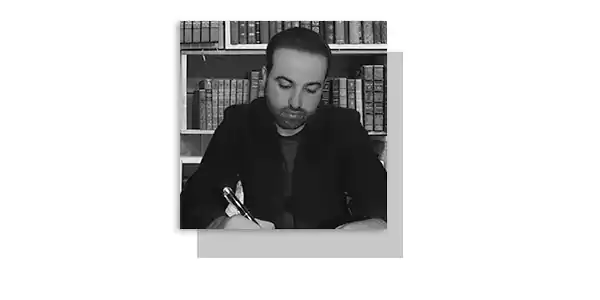Future of the Liberal Order in Post-Truth Globalism and Eurasian Response
WESTERN Liberalism endured two existential threats during the past century—the Pan-Germanic authoritarianism of Hitler (dusted in 1945) and the vanguardist, Bolshevik USSR (collapsed in 1991). Gorbachev summarized the latter “This country was suffocating in the shackles of the bureaucratic command system. Doomed to cater to ideology and suffer and carry the onerous burden of the arms race, it found itself at the breaking point”. President George H. W. Bush defined the shift as a New World Order characterized by “non-violence and the principles of peaceful coexistence”. The Berlin Wall fell and Eastern European countries freed themselves from Soviet domination.
Afterwards, how substantively did the Western intelligence systems transform their approach required to foresee the post-cold War “shapes” of democracy and challenges within and without? How futuristically did the US State Department conceive “national interest” before setting its foreign policy goals for the next two decades? To answer these important questions, Mershon Centre at Ohio State University and the Midwest Consortium for International Security Studies timely sponsored collaborative research in 1994. The authors of the individual chapters examine a wide variety of bureaucratic institutions and some major substantive policy areas.
“There are signs of genuine change, but there is much more evidence to suggest that the United States is clinging to its old foreign policies and structures”, they conclude. Clinging to old structures means failing to pre-empt a bigger challenge humming at the doorsteps of the Western liberal order—post-truth globalism. It started when Tim Berner-Lee, a British scientist working for CERN (European Organization for Nuclear Research) launched World Wide Web in 1991. CERN placed the technology for public consumption in 1993 when 42% of Americans had already acquired computers. In 1994 Jerry Yang and David Filo launched Yahoo and 11 million Americans including Bill Clinton’s white house turned online.
In 1997, when the Jet Propulsion Lab was allowing people to watch the Sojourner rover landing and exploration of Mars and the broadcast was generating about 40 million to 45 million hits each day, the same year William Strauss and Neil Howe were prognosticating the crisis era of the upcoming fourth turning after 2020 on the basis of their provocative generational theory—a disorder that “could rival the gravest trials our ancestors have known” and serve as “the next great hinge of history. In 2004 when Ralph Keyes was diagnosing the fluid nature of “enhanced truth” due to systematic deception and its consequences for the nature of public discourse, media, business, literature, academia and politics in his book “The Post-Truth Era: Dishonesty and Deception in Contemporary Life”, 7 months before in the same year, Facebook was launched by Harvard students to measure the attractiveness of their fellow students and staff.
Today Facebook has more than 3 billion users worldwide. An estimated 5.3 billion people are connected online. The data traffic is increasing exorbitantly. In 2020, 64.2 zettabytes of data were created, which is a 314 per cent increase from 2015. World’s capacity for sensing, storing, processing and responding to information has roughly doubled every 40 months since the 1980s. This explosion of exposure translated the world into a different psycho-social paradigm. A critical throwback to the evolution of psycho-social tendencies developed in super-stimulated millennials followed by super-exposed Generation Z, and the interaction of these tendencies with economic insecurity and politics, together with signs of inclination towards populist, non-democratic solutions of political problems validate that the non-linearity of intellectual, psychological and emotional impacts of exploding connectivity was tactically overlooked. The inconsistencies and contradictions of what Gordon Menzies calls Western Fundamentalism surfaced times faster than they could in the absence of the World Wide Web (Western Fundamentalism: Democracy, Sex and the Liberation of Mankind)
Values, prosperity, disorders and deprivation cascade across borders indiscriminately developing a sense of shared globalism. Everybody has a screen to project a power of expression that allows young polity to enjoy catharsis with confidence and a position with prejudice much more rapidly than ever before. The reality has become extremely subjective. Moreover, fast-track agenda-setting made global governance a multi-layered matrix with grey areas. International regulatory frameworks for peace and cooperation designed after World War-II struggle to race with parallel perception management systems controlled by individuals, interest groups, media and corporate intelligence. In October 2021, The UN Secretary-General, Antonio Guterres, addressed the Global Education Ministers Conference and pointed towards the severity of the post-truth era as “A dubious webpage or anonymous post can call into question decades, even centuries, of work, thought, study and careful analysis by scientists, historians or other experts”.
While growing up in a flood of information, Post-Truth generations see life as a pragmatically subjective affair. The Common Sense by Thomas Pains and John Locke’s Two Treatises of Government are possibly important documents for them to cherish the intellect of their glorious forefathers but most likely they will not submit completely to these cosmetics of political correctness unless they are genuinely aligned to serve their economic insecurity. Economic insecurity is a major reason behind rising trends of political sensationalism in the West. From 1973 to 2017, as the U.S. economy grew and productivity rose by a staggering 77 percent, average compensation grew by a mere 12.4 percent. During the last two decades, millennials and the succeeding demographic cohort have been facing disproportionate increases in rent, healthcare and tuition. Newsweek reports that between 1979 and 2013, average incomes for the richest 19 percent soared by 70 percent. For the top 1 percent, income rose by 192 percent as compared to 42 percent growth for the bottom 80 percent of households. —To be continued.
—The writer is a columnist and an academic. He teaches public policy at National Defence University Islamabad.










